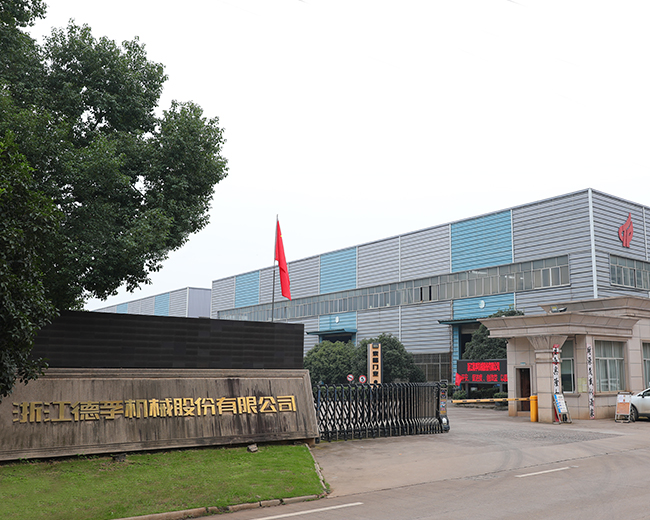Sale Hydraulic Press Factory

WELCOME TO DEFU!
The company mainly produces various types of hydraulic presses, various four-column and gantry hydraulic presses with dozens of specifications, hundreds of varieties of hydraulic and forging equipment, as well as open, closed, single-point, double-point, and four-point precision punching equipment and products. It is suitable for many industries and fields such as automobiles, aerospace, nuclear power, ships, home appliances, communications, etc. The company's products have always been recognized by domestic and foreign customers for their exquisite design, reasonable prices, quality, fast after-sales service, and technical support. They are sold well in more than 30 domestic provinces, cities, and districts, and are exported to the United States, Europe, and Southeast Asia. , the Middle East, Africa, and other regions and dozens of countries. The company pays attention to scientific and technological progress and has built a technology center that is suitable for its development. It has a scientific research team of dozens of people with reasonable structure, completely professional and rich experience, and strong independent research and development capabilities.
Latest News
Ensuring Excellence: Quality Requirements and Advantages of Hydraulic Press Machines
Hydraulic Press Factory's Quality Requirements
A hydraulic press factory must adhere to stringent quality requirements to ensure the reliability, safety, and efficiency of its machinery. Quality control starts with the selection of materials. High-grade steel and other robust materials are essential for constructing durable and resilient hydraulic presses. These materials must withstand immense pressure and repeated use without compromising performance.
Precision engineering is another critical quality requirement. Components must be manufactured to exact specifications to ensure seamless assembly and functionality. Advanced manufacturing techniques, such as CNC machining and laser cutting, are often employed to achieve the high level of precision needed.
Quality control processes, including rigorous testing and inspection, are integral to maintaining standards. Each hydraulic press undergoes thorough testing under simulated operating conditions to verify its performance, durability, and safety. These tests assess parameters such as pressure capacity, accuracy, and operational smoothness.
In addition, compliance with industry standards and certifications is vital. Hydraulic press factories must adhere to guidelines set by organizations such as the International Organization for Standardization (ISO) and other relevant bodies. Certifications, such as ISO 9001 for quality management systems, ensure that the manufacturing processes meet global standards.
Finally, continuous improvement practices are essential. Regular audits, feedback mechanisms, and employee training programs help identify areas for improvement and implement practices. This commitment to quality ensures that hydraulic presses produced in these factories consistently meet or exceed customer expectations.
Advantages and Strengths of Hydraulic Press Machines
Hydraulic press machines offer several advantages and strengths, making them indispensable in various industrial applications. One of the primary benefits is their ability to generate immense force. Hydraulic presses can exert consistent and powerful pressure, which is crucial for tasks such as metal forming, forging, and stamping. This capability allows them to handle a wide range of materials and thicknesses with ease.
Another significant advantage is their precision and control. Hydraulic systems enable precise regulation of pressure and speed, ensuring accurate and consistent results. This precision is particularly important in applications that require exact specifications and high-quality finishes.
Versatility is another strength of hydraulic press machines. They can be adapted for various operations, including bending, punching, cutting, and molding. This flexibility makes them suitable for use in diverse industries, from automotive and aerospace to construction and manufacturing.
Hydraulic presses are also known for their efficiency and reliability. They require less maintenance compared to mechanical presses, as they have fewer moving parts and experience less wear and tear. This reliability translates to lower downtime and increased productivity.
Safety is a crucial aspect of hydraulic presses. These machines are designed with safety features such as overload protection, pressure relief valves, and emergency stop buttons. These features help prevent accidents and ensure safe operation, protecting both the operators and the equipment.
Achievements of Metal Door Embossing Machines
Metal door embossing machines are specialized equipment designed to create intricate patterns and designs on metal doors. These machines offer several achievements that enhance both the functionality and aesthetics of metal doors.
One of the primary achievements of metal door embossing machines is the ability to produce detailed and consistent designs. Using advanced molds and dies, these machines can emboss complex patterns with high precision. This capability allows manufacturers to create aesthetically pleasing door designs that enhance the visual appeal of buildings and homes.
In addition to aesthetics, metal door embossing machines contribute to the structural integrity of doors. The embossing process can strengthen the metal by creating raised or recessed areas that add rigidity. This reinforcement makes the doors more resistant to impact and deformation, improving their durability and lifespan.
Customization is another significant achievement of these machines. They can be programmed to produce a wide range of designs, allowing for tailored solutions to meet specific customer requirements. Whether it’s a unique pattern for a residential door or a standardized design for commercial use, metal door embossing machines provide the flexibility needed for diverse applications.
Efficiency and productivity are enhanced with the use of metal door embossing machines. These machines can operate at high speeds, producing large quantities of embossed doors in a relatively short time. This efficiency is essential for meeting the demands of large-scale projects and maintaining competitive times.


 EN
EN















